Rui Hachimura knew it was coming because it always happened. For two weeks, his life was straight out of Groundhog Day. A 13-year-old junior high student at the time, Hachimura would walk into class, sit in his seat and just wait for that inevitable daily plea.
“You should join our basketball team,” his friend would say.
Hachimura did not have any interest. Basketball was too hard, he’d say, and like many other boys growing up in Japan, he had dreams of excelling on the baseball diamond. But after two weeks of the daily request, his priorities changed. He didn’t care about which sport he wanted to play. Hachimura just wanted his friend to leave him alone.
“I didn’t really want to play basketball, but he was so annoying,” Hachimura says. “I agreed to go one time.”
When he got there, he met the basketball coach, who had a message of his own, one a little less annoying and a little more enticing.
“The first time I met my coach, he told me I could go to the NBA,” Hachimura says. “I was kind of stupid so I believed him.”
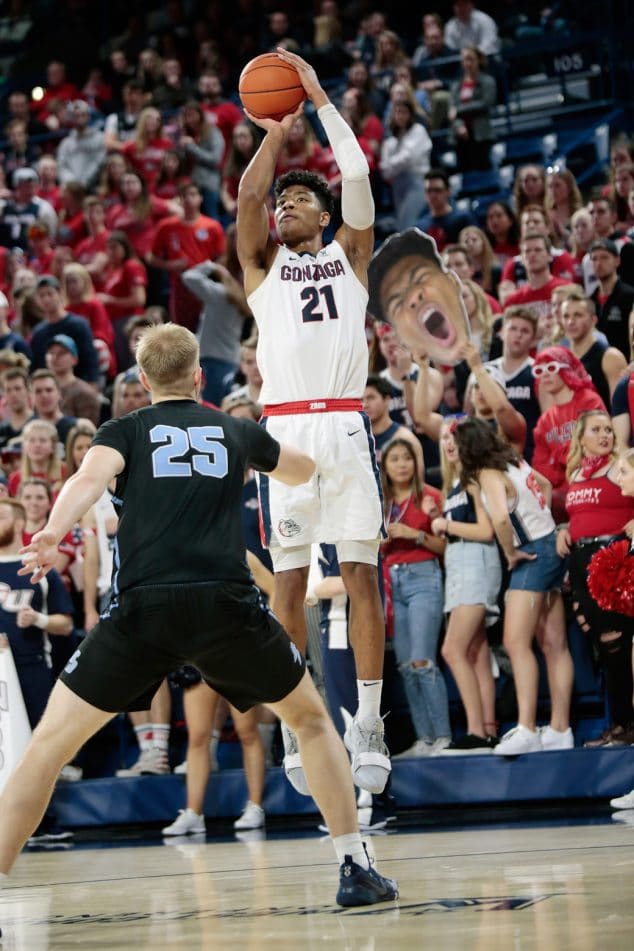
It sounded stupid because it seemed nearly impossible. No Japanese-born player had ever been selected in the NBA draft, and Yuta Tabuse’s four-game stint with the Phoenix Suns in 2004 was the only time a Japanese native even got a taste of NBA action.
But Hachimura, the son of a Beninese father and a Japanese mother, is blazing a new trail. Now a 6-8 junior at Gonzaga, he is a projected NBA lottery pick in every 2019 mock draft you can find. He’s already the first man from his country to play in the NCAA tournament and the fifth to ever play Division I men’s basketball. As of March 11, he’s averaging a team-high 20.6 points per game and has the No. 1 ranked Bulldogs (29-2) among a handful of teams with very realistic hopes of a national title.
“Not many people have ever done what he’s trying to do,” says Gonzaga assistant Tommy Lloyd, who recruited Hachimura. “This is probably the first player from Asia we ever looked at.”
While Hachimura didn’t start playing basketball until he was 13 years old, it didn’t take him long to get on Gonzaga’s radar. At the 2014 U-17 World Championships in Dubai, he led all players in scoring average (22.6 ppg), which was enough to get the Bulldogs’ interest. A year later, they secured his commitment.
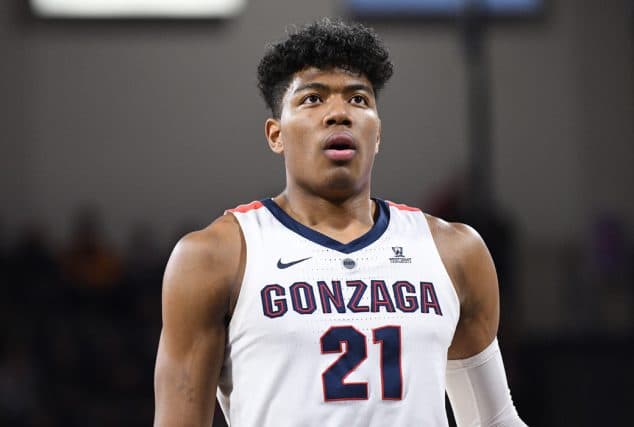
Above anything else, there was one reason why he wanted to go to college in the United States.
“One of my goals was to be in the NBA,” Hachimura says. “I knew if I didn’t speak English, I really couldn’t play in the NBA. I thought it was a good idea to go to college first.”
While Hachimura was a rising star in his own country, he knew relatively no English while he was in high school. He would often fake it or just avoid talking when others spoke English around him. This became a problem at Gonzaga, as he needed to reach certain collegiate and NCAA standards to play.
“That was No. 1 in everything he did,” Lloyd says. “He had to improve his language skills.”
Hachimura eventually met the standards he needed to, but there was still a long way to go. In 2016, months prior to his enrollment, Hachimura told reporters that he understood 80 percent of English and could speak about 40 percent. Zach Collins, his Gonzaga teammate during Hachimura’s freshman year, remembers him being very quiet when they first met, and it was a few weeks before the two could have a conversation.
“He could understand you, but it was just him getting the words out that was more of a struggle,” says Collins, now a member of the Portland Trail Blazers.
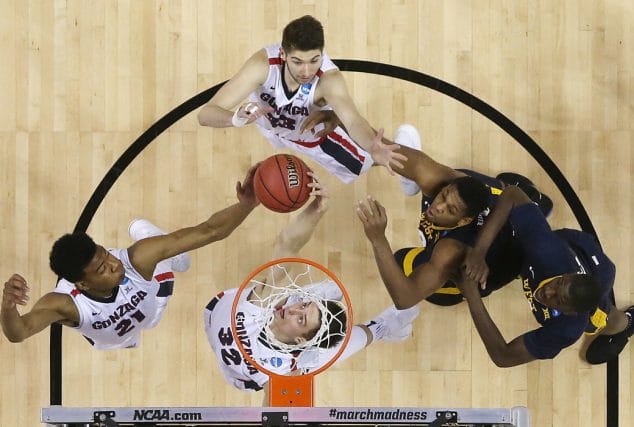
As a freshman, Hachimura used every resource he could. When he wasn’t at the athletic facility, he was at Gonzaga’s English Learning Center. And in practice, he leaned heavily on Gonzaga’s team video coordinator Ken Nakagawa, whose parents were both Japanese, to help him understand what the coaches were saying.
“One of the first things he told me was that he didn’t want to speak in Japanese at all,” Nakagawa says. “He wanted everything to be English. I would just dumb it down to elementary school level.”
It wasn’t an overnight success. As a freshman in 2016-17, Gonzaga made the Final Four, but Hachimura played less than five minutes per game.
“It was harder than what I expected,” Hachimura says. “The culture is totally different. The language is different. I started feeling comfortable when I could communicate with my teammates and coaches.”
That level of comfort wasn’t fully achieved until after his first season. With the language barrier a little broken down, Hachimura could devote more of his time to improving his on-court skills. First and foremost, that meant getting physical.
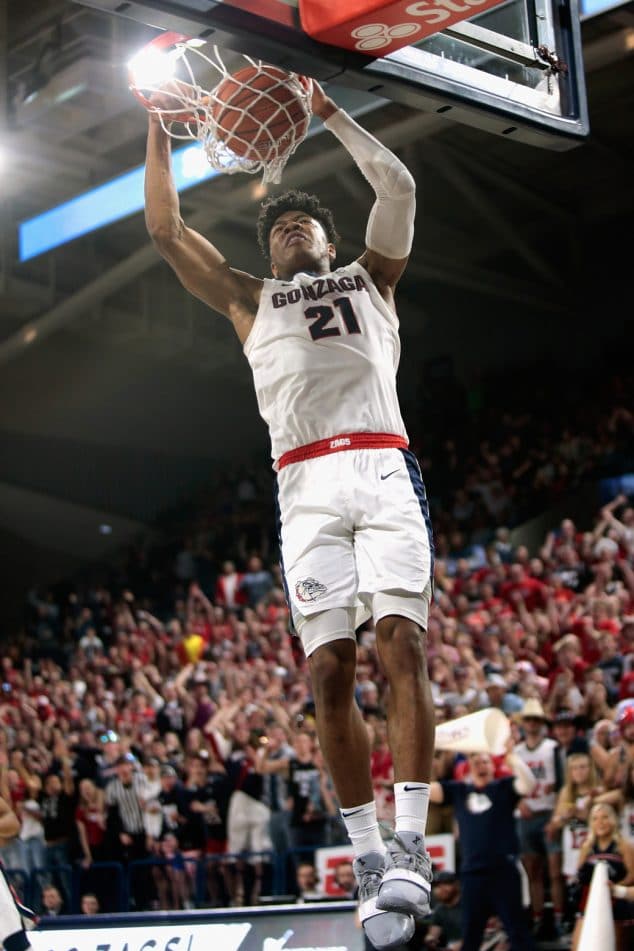
At 6-8 and 230 pounds, Hachimura had the frame to wreak havoc, but he wasn’t used to playing that style in Japan. The Gonzaga coaches got on him for it, and midway through his sophomore season, in a road loss to San Diego State, things finally clicked.
“It was the first time he used his body and tools to take advantage of his advantages,” Lloyd says.
From that game forward, Hachimura led the Bulldogs in scoring. And in his junior year, he has looked even better, opening the campaign with a career-high 33 points in a win against Idaho State and dropping 25 or more on four other occasions.
“He was a better shooter and more skilled than we thought,” Idaho State coach Bill Evans says. “He’s going to make a lot of money some day.”
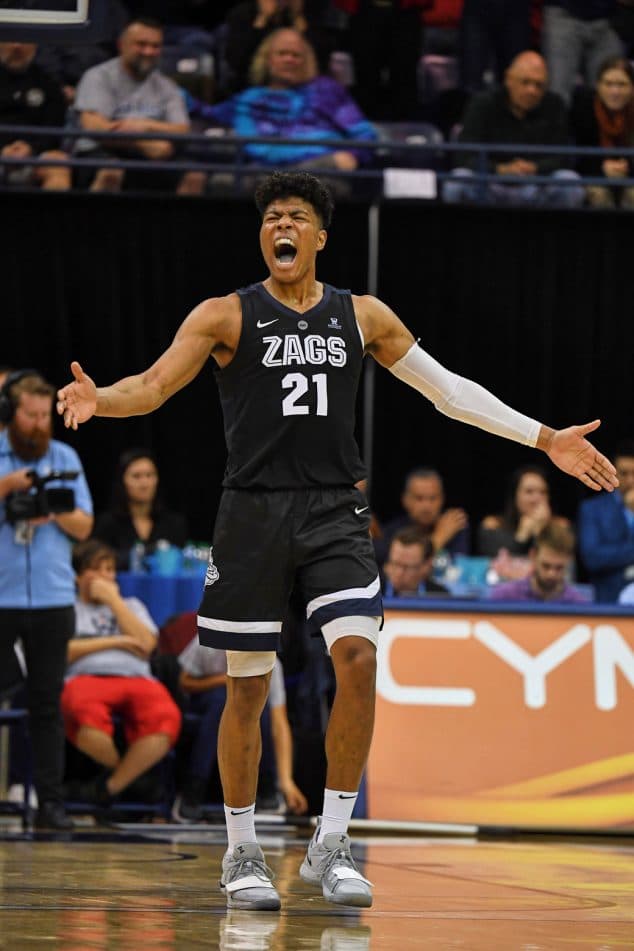
While a hefty professional contract seems like a formality at this point, it’s the untapped basketball market of Japan that makes Hachimura one of the most intriguing NBA prospects in a long time. Although Hachimura is only half-Japanese, something he believes will hamper his marketability back home, he’s the basketball star of a country with a growing interest in the game.
Nakagawa says there is a big gap between basketball and Japan’s more popular sports like baseball and soccer, but that gap may be diminishing. The B.League, founded after a merger between two former Japanese leagues in 2015, has increased the scope of professional basketball in the country.
And then there’s Hachimura’s already growing popularity. His success on the national team made him a celebrity among Japan’s basketball community, and that has only increased since he left for Gonzaga, as a handful of his games are re-aired on Japanese television.
The timing could not be more perfect, as Tokyo is set to host the 2020 Olympics. While that will bring many NBA stars to Japan, Hachimura figures to be front and center as the face of the national team.
“The general public has no idea who he is or what kind of significance he has to the game,” Nakagawa says. “I think 2020 will be another landmark opportunity to make basketball popular in Japan, and I think Rui will have a big part in that for sure.”
—
GRAB YOUR COPY OF SLAM PRESENTS THE GREATEST COLLEGE PLAYERS OF ALL TIME HERE.
David Casillo is a contributor to SLAM. Follow him on Twitter @dcasillo.
Photos via Getty.
